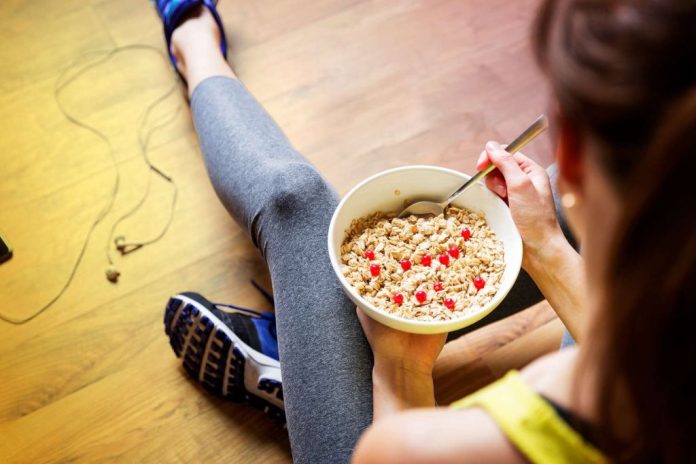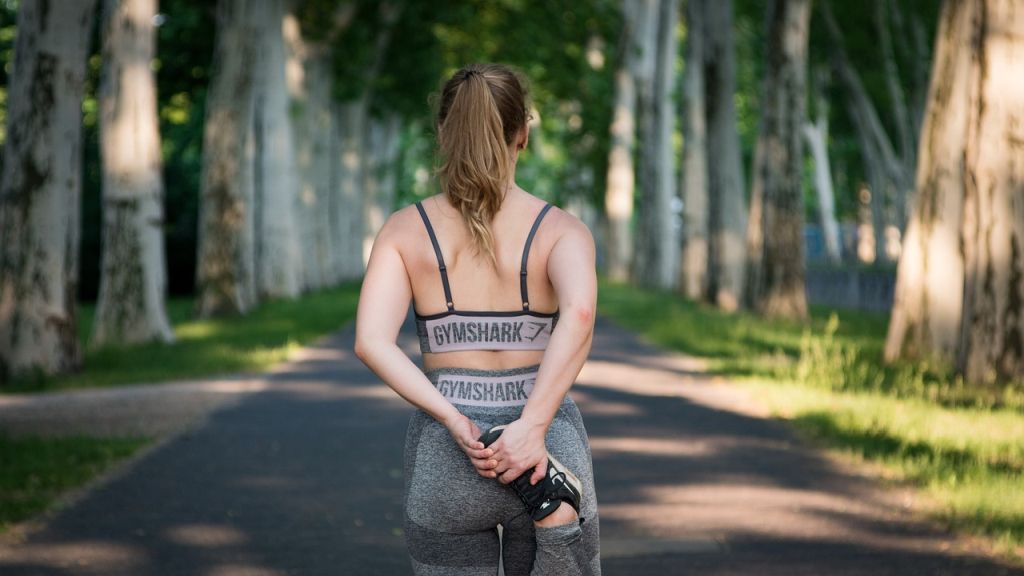Throughout history, humans have relied on meat to fuel their most strenuous activities. Ancient Greeks consumed red meat before Olympic events, while medieval knights replenished themselves with venison and pork after battles. Today, world-record weightlifters continue this tradition with hearty breakfasts of chicken thighs, eggs, and bacon.
However, modern experts suggest that the average person should include a variety of other foods in their diet before and after intense workouts, even though these might not have been on the menu for knights of old.
The Missing Ingredients
During exercise, the nutrients we’ve consumed are transported by our blood to our muscles, which absorb them. “We are what we eat,” says Keith Baar, a molecular exercise physiologist at the University of California, Davis. “And when we exercise, we’re more of what we just ate.” Proper nourishment enhances muscle performance, makes exercise easier, and speeds up recovery.
Ancient warriors were correct about the importance of protein. It is essential for building and repairing muscle tissues during and after exercise. However, David Nieman, who leads research on exercise and nutrition at Appalachian State University’s Human Performance Lab, notes that many people overemphasize protein. “Unfortunately, a lot of people still act like protein is everything,” he says.
Carbohydrates are just as crucial, especially for cardio workouts. High-fiber carbs are particularly beneficial for long-term health compared to less nutritious carbs. “We’ve known since the 1960s that muscles want carbs,” Nieman explains. Carbohydrates are converted into glycogen, which is stored in muscles for energy. “The research is so strong, you’d be foolish not to use it,” he adds.
Yet, the best exercise fuels might be fruits, nuts, dark greens, and other plants. These are rich in essential nutrients like folate, magnesium, and vitamins A, D, and E, which can reduce exercise-induced stress and inflammation. Most Americans don’t consume enough of these foods. “Over 90% of our recommendations for many people come down to eating more whole plant-based foods,” Nieman says. For light exercisers, “everything else is minor.”
For those aiming to meet the minimum exercise recommendation of 150 minutes per week, following the daily guidelines for vegetables, protein, and carbs suffices. It doesn’t matter much whether these foods are eaten before or after a workout, experts agree.
Before Your Workout
Power Up with Nuts and Berries
Surprisingly, research highlights the benefits of a simple bowl of blueberries and almonds. These foods, often overlooked by ancient warriors, are rich in polyphenols—compounds in plant-based foods that reduce inflammation from extended workouts.
Blueberries, especially wild ones, have shown positive effects in both competitive cyclists and untrained athletes. Their polyphenols act as antioxidants, combating harmful molecules caused by exercise-induced inflammation. This accelerates recovery. Jenna Stangland, team dietitian for the Minnesota Timberwolves, incorporates polyphenols into the players’ diets, contributing to their success. Nieman’s studies also suggest that consuming about 40 almonds daily for four weeks before heavy exercise can reduce muscle damage.
Decades of research support the general health benefits of polyphenols, but their role in exercise is a newer discovery. “They’re the future of sports nutrition,” Nieman says.

Eat a Slice of Sourdough Two Hours Before
For intense exercise, increase your carb intake above the minimum guidelines. Healthier sources of carbs include chickpeas, lentils, and sourdough bread, which provide a slow, steady energy release. Aim to consume these carbs about two hours before working out, advises Elaine Lee, a kinesiologist at the University of Connecticut’s Human Performance Laboratory.
Eat a Banana Immediately Before
Carbs with more sugar and less fiber, such as bananas, are broken down faster and can be used by the body right away if consumed just before or during exercise. Nieman’s research shows that bananas can promote recovery as well as sports drinks. Stangland recommends honey for its mix of simple sugars for energy, giving her players honey sticks before and during games.
Sate Your Hunger with Eggs
Combining pre-workout carbs with protein, such as eggs or Greek yogurt, can be beneficial. Protein is filling, helping to overcome hunger, a common obstacle to exercise. “You’ll feel sated for longer, which can play a role in how you perform,” Baar says. Vegetarians can opt for plant-based proteins like lentils, which provide ample amounts of protein. Stangland notes that brown rice and pea protein powder is a perfect mix for vegetarians, offering all essential amino acids.
Consider Coffee and Collagen an Hour Before Exercise
Caffeine is one of the few pre-workout supplements backed by research as safe and effective for athletic performance. Collagen, a protein that may reduce joint pain, is another supplement to consider. Mixing collagen with orange juice an hour before exercise can increase absorption. Stangland prepares “watermelon collagen shots” for her players, especially those prone to tendon injuries. Adaptive CrossFit athlete Amy Bream also finds collagen helpful for her back pain.
After Your Workout
Refuel with Sweet Potatoes 1 to 4 Hours After
After exercise, it’s crucial to replenish the glycogen used during the workout to prepare for future sessions. Lee recommends combining high-fiber carbs, protein, dark greens, and hydration within 1 to 4 hours post-exercise. Sweet potatoes are ideal for the carb portion, offering fiber and nutrients like polyphenols and electrolytes, which aid in rehydration. Stangland includes sweet potatoes in the Timberwolves’ diet regularly, noting their popularity and benefits.
If You’re Older, Have Protein Immediately After
While protein can be consumed at any time during the day, seniors benefit more from eating it immediately after exercise. This timing helps target the protein more effectively to the muscles. Baar also suggests chewing food thoroughly and opting for ground meats over steaks to enhance protein absorption.
Don’t Overdo It with Vitamins
While antioxidants are important, consuming too many post-workout can negate the benefits of exercise. Studies show that athletes who supplement excessively with vitamins C and E experience more inflammation and molecular stress. However, it’s nearly impossible to reach harmful levels through food alone.
Experiment with Recovery Shakes and Other Combinations
“We don’t yet have a magic shake” for exercise recovery, Lee says. Individual tolerance for different foods varies, so it’s important to experiment. Try a polyphenol-rich bowl of almonds, blueberries, and greens—an AB&G instead of a PB&J—after workouts to see if it improves your performance over two weeks. Measure your heart rate during and after exercise and track any changes.
Stangland creates custom recovery shakes for each Timberwolves player, adding extra carbs for high-performance players like Edwards. Ultimately, nutrition is a personal journey. “You have to find what works for you,” Lee concludes.









